My March journey through Kazakhstan began with a long train ride from Nukus, in Uzbekistan’s Karakalpakstan region, to the remote town of Beyneu in western Kazakhstan’s Mangystau Region. Just two hours before boarding, I’d returned to Nukus after an unforgettable tour of the Aral Sea region. I called a Yandex taxi, and minutes later I was passing through security and stepping onto the train.
A train ride from hell
I had assumed I’d booked a four-berth, female-only cabin – turns out that was for my next train. This one was a platzkart – a large open carriage packed with 40 to 50 people. It was stiflingly hot, incredibly noisy, and I found myself surrounded by men. Although they were kind and welcoming, there was a language barrier: they didn’t understand English, and I spoke only a little Russian and barely any Uzbek. Still, they smiled, offered me tea, and tried to make me feel at ease. But I was already emotionally drained. The Aral Sea tour, though stunning, had been soured by a group of self-absorbed travellers who spent the entire trip bragging, one-upping, and tearing each other down – honestly, the kind of people who ruin the joy of shared experiences. I felt utterly depleted. Sitting on that train, overwhelmed, isolated, and vulnerable, I quietly cried. I could only hope that being surrounded by people might mean safety in numbers, even if it didn’t feel like comfort.
Before the train departed, vendors wandered through the carriage selling bread, soda, and dried fish – which gave the entire space a pungent, salty smell. A curious choice, given we were nowhere near the sea. At one point, a train worker came through and collected everyone’s passports. No explanation, just gone – another stress factor added to the pile.
As the train rolled out of Nukus, attendants handed out sheets and pillowcases. I made my bed right away, eager to shut out the world and sleep. I know I should’ve embraced the cultural exchange, made conversation, soaked in the experience like a true traveller – but I was just too overwhelmed. Eventually, the carriage quieted, and I drifted into a restless sleep, hugging my bag of valuables as always when sharing sleeping quarters with strangers. I woke up several times, uncomfortable and cramped – my berth was just a few centimetres too short for me to stretch out. At times like these, I’m oddly thankful to be a short woman; I can’t imagine a taller person managing to sleep in that tiny space.
Around 4 AM, we were all abruptly woken up and asked to sit up on the bottom bunks. Our passports were returned – briefly easing some anxiety – before we were told to wait for the border guards. We had finally arrived at the Uzbekistan–Kazakhstan border, at what I believe is called the Täjen crossing. When the border guard entered our section of the carriage, his tone was firm, even harsh, especially with the men. But then he spotted me – clearly a solo foreign woman amid a sea of locals – and his demeanor noticeably shifted. He softened, even smiled. I could hardly believe it. Maybe he was just surprised to see someone like me travelling this route alone. He checked my passport, asked only one question – whether I was carrying a drone (I wasn’t) – then started inspecting bags in the compartment. After that, he walked off again with all of our passports. So once again, we sat in limbo, unsure when or if we’d get them back. The entire inspection process took about three hours. When our documents were finally returned, the train continued its slow journey across the border. At last, I was in Kazakhstan.
Exhausted, I managed to fall back asleep for a bit, setting an alarm for 7.15 AM to wake up before our expected arrival in Beyneu at 7.42. The sun was just beginning to rise, casting a soft pink glow over the desert outside the grimy train window. Much to my surprise, when we reached Beyneu, we had to stay on the train for yet another round of security and passport checks before we could leave. I had been holding in my need to pee for hours, having decided to avoid the train’s foul toilet. In hindsight, that was a huge mistake. We had to stay in our seats, and the toilets had been locked.
The wait dragged on. First, border guards came aboard with flashlights, inspecting luggage – though only randomly and not very thoroughly. Then a sniffer dog was brought in (a very cute one!), and it made its way through the compartment, checking bags and passengers. Then we waited again, this time to get our passports officially stamped. By then, I was in serious pain. Cramped and desperate, I still had to wait to be called – and being in the last seat meant I was last in line. I thought that once I had my passport stamped, I’d finally be free. But no. Even after that, we weren’t allowed off the train. I asked a man who spoke a little English how much longer we’d have to wait. “Maybe one or two more hours,” he said casually. That broke me. I was in so much physical pain from needing to pee, I started crying – again. Thankfully, a compassionate border guard noticed and escorted me to the toilet, standing guard while I went. When I emerged, a line had already formed. Clearly, I wasn’t the only one desperate.
Finally – after two hours that felt both painful and entirely pointless – we were released. What a way to arrive. But still, I was so happy to finally step into the streets of Beyneu!
I walked straight to Hotel Arna. To my relief, they had a room available – with a hot shower and WiFi – for just 8,500 tenge (~ 110 DKK). I wasn’t planning to stay the night, but it was absolutely worth it just to have a quiet place to rest, clean up, and stash my bags while I explored the town. After the exhausting border ordeal, it felt like a luxury.
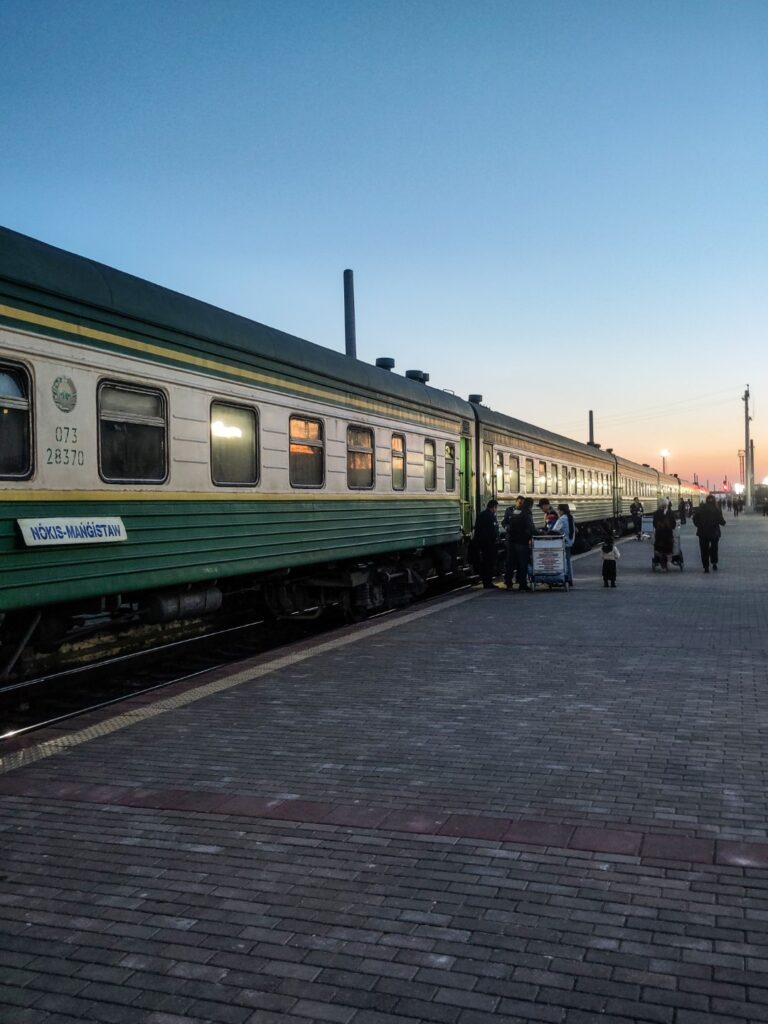
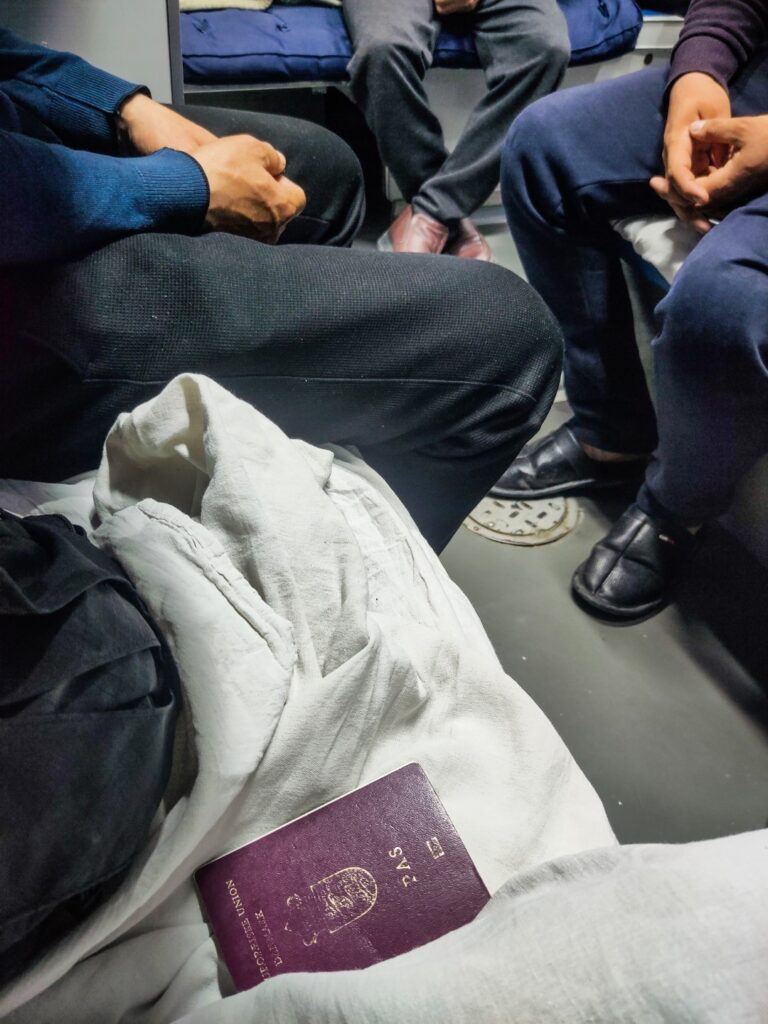
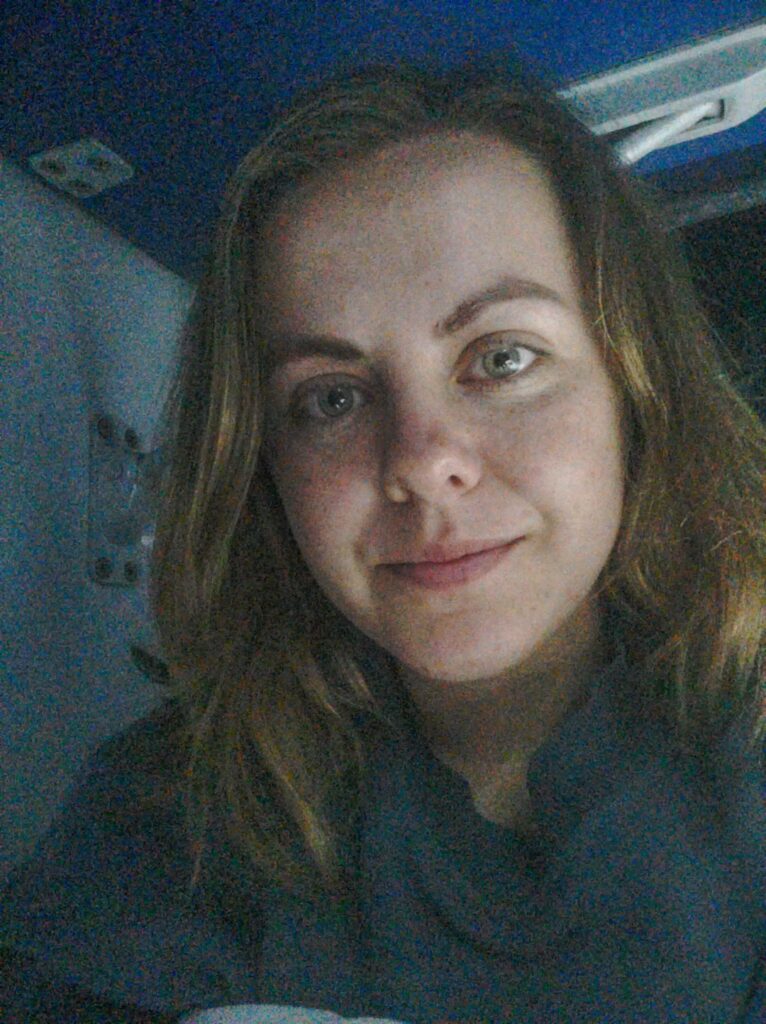
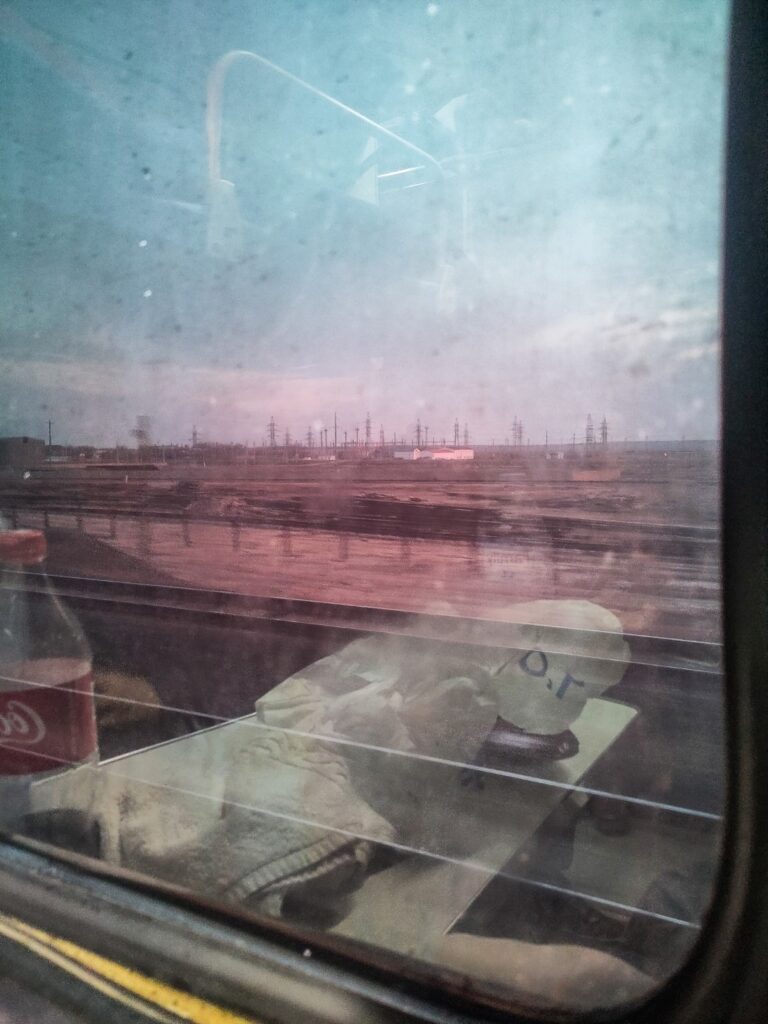
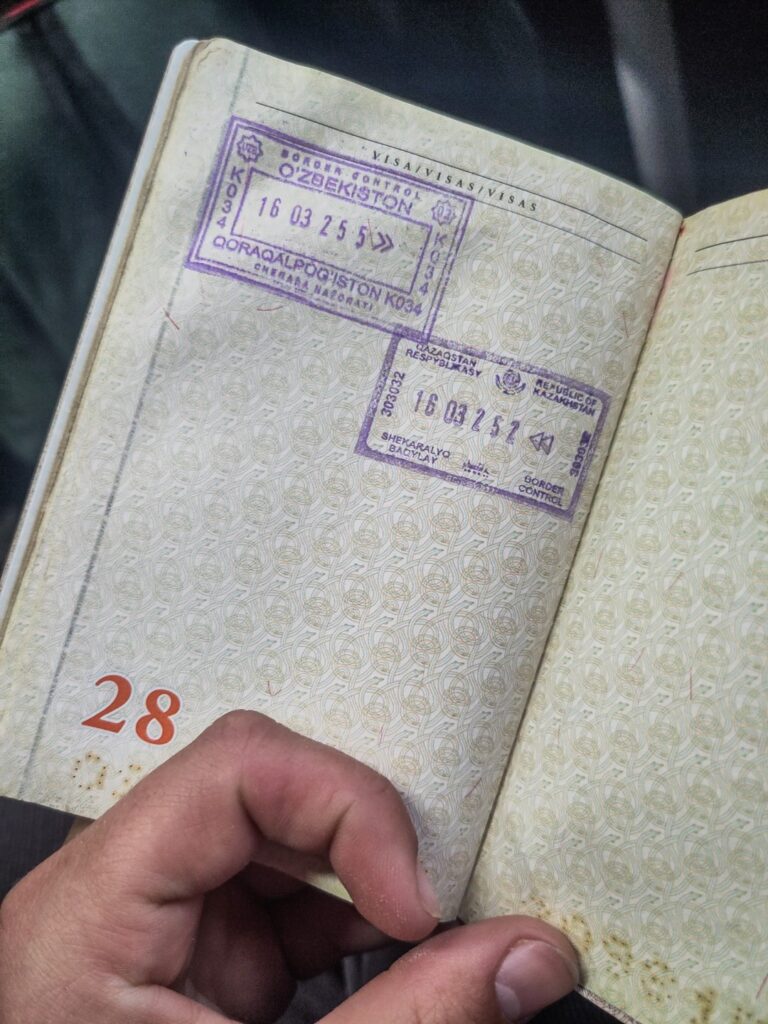
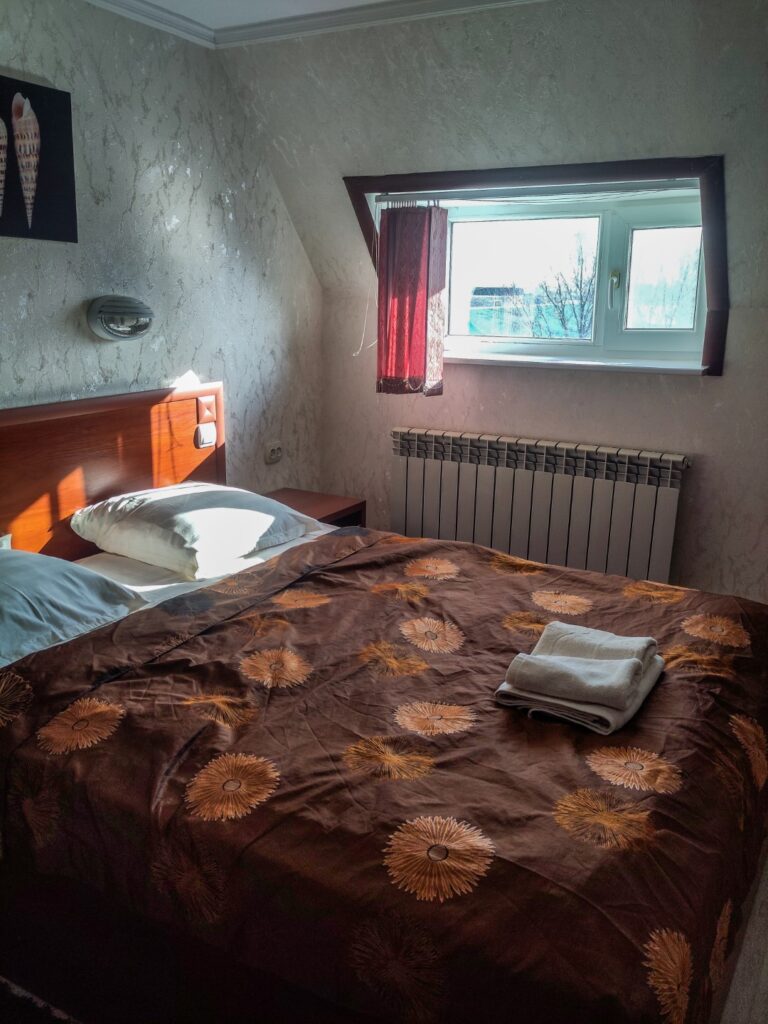
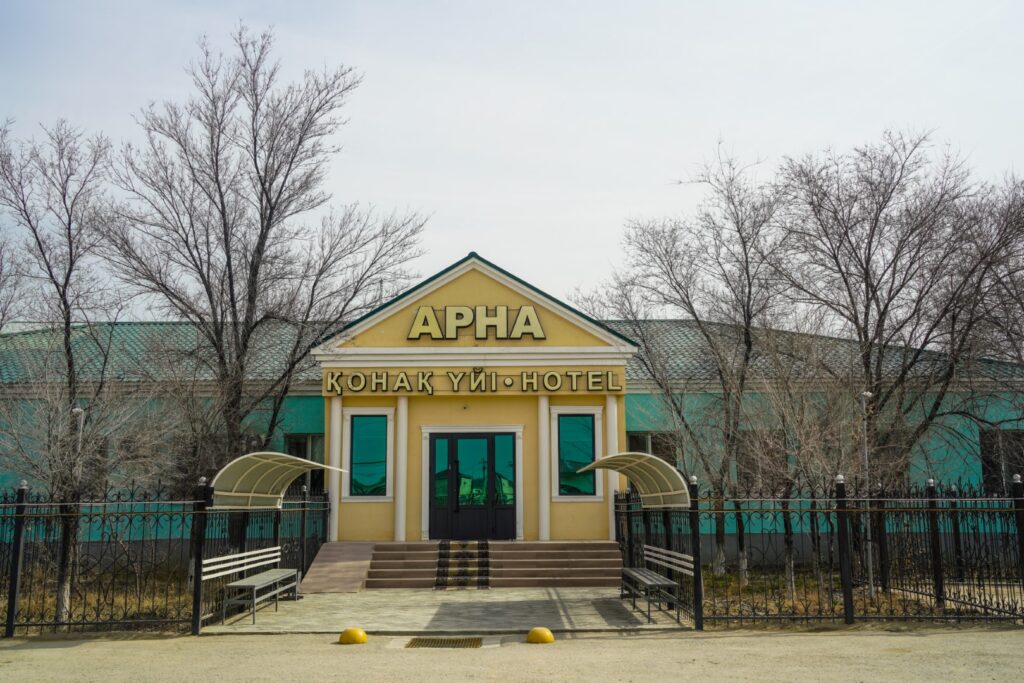
Out and about in Beyneu
After relaxing for a bit and taking a much-needed hot shower, I headed out to explore Beyneu.
The town started growing in the 1970s, transforming from a small village into a city following the discovery of oil in the area. Today, it’s home to around 40,000 people.
Beyneu’s very existence feels almost improbable – planted in the middle of nowhere, quite literally the only town within a 350-kilometre radius. But that isolation is exactly what makes it so appealing to me. I love visiting off-the-beaten-path places, and Beyneu absolutely fits the bill. The streets are mostly unpaved mud, and there are no real attractions to speak of – but that’s part of its charm.
I tried (and failed) to exchange my leftover Uzbek currency – every bank I came across was closed, and even after asking several locals, I had no luck. Eventually, I returned to the train station where I’d seen a bankomat. Thankfully, it worked, and I was able to withdraw some tenge.
Next stop was a local phone shop, where I got myself a Kazakh sim card. It took a while to sort out, and at 9,500 tenge (~ 125 DKK), it was quite a bit pricier than my Uzbek sim card. Still, I knew I’d regret not having internet access while travelling through large parts of rural Kazakhstan.
With the essentials sorted, I wandered through the bazaar, picking up food, snacks, and drinks – supplies for both lunch and my upcoming 38-hour train ride to Astana. Along the way, I made friends with a tiny black kitten.
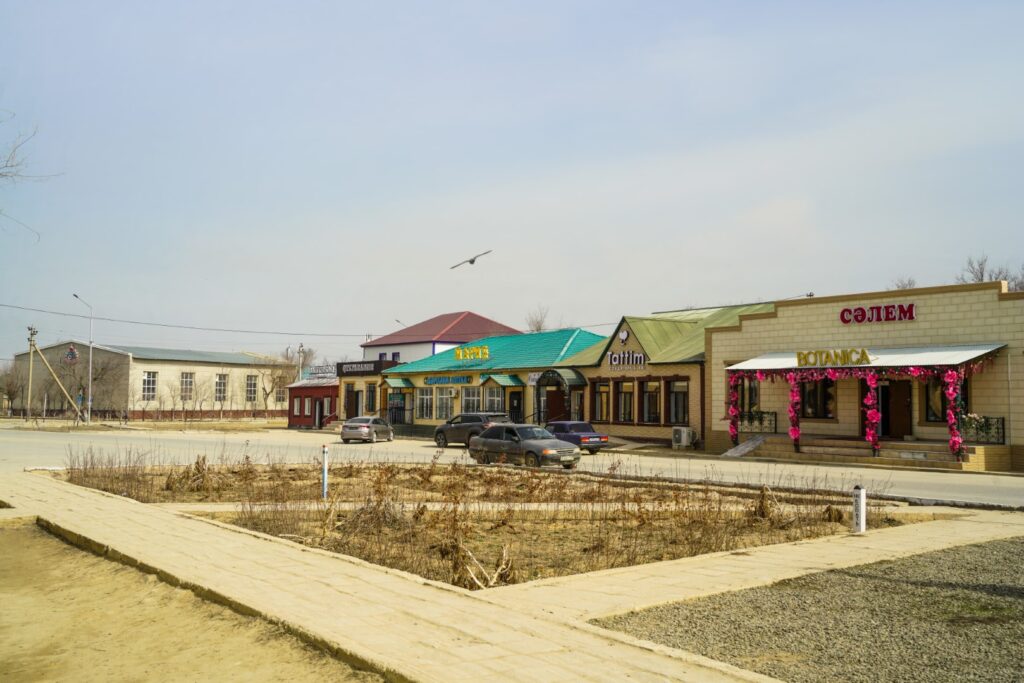

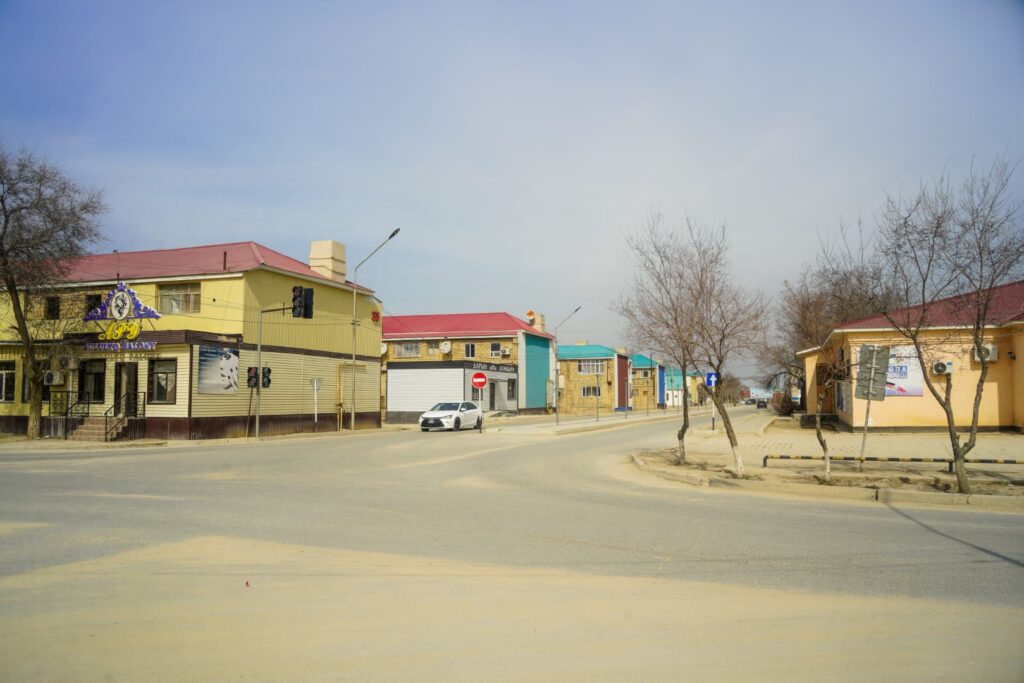
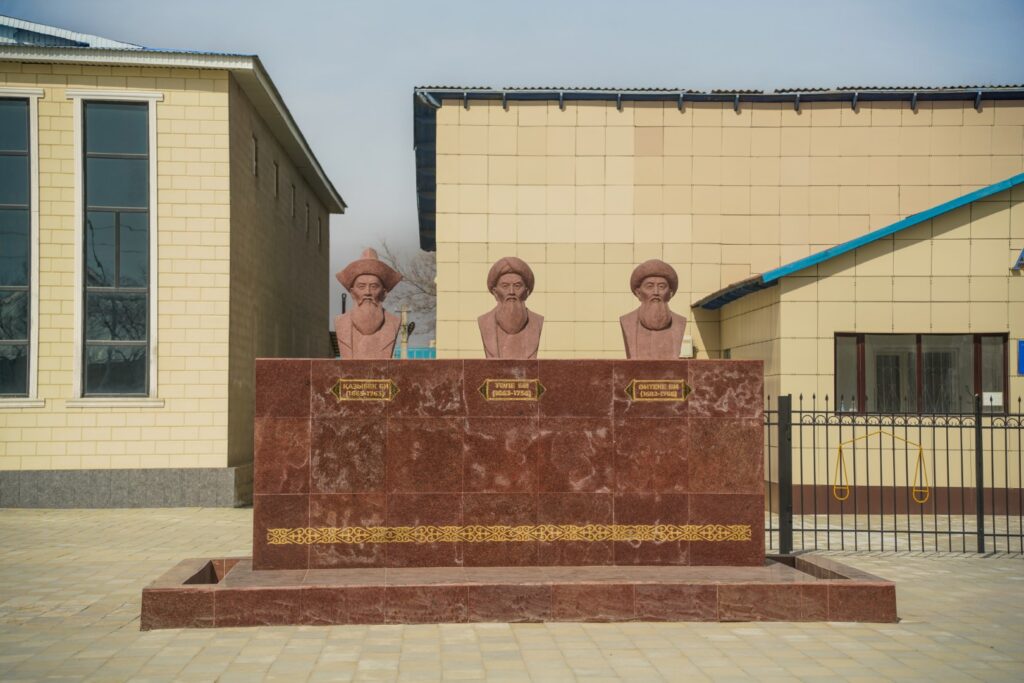
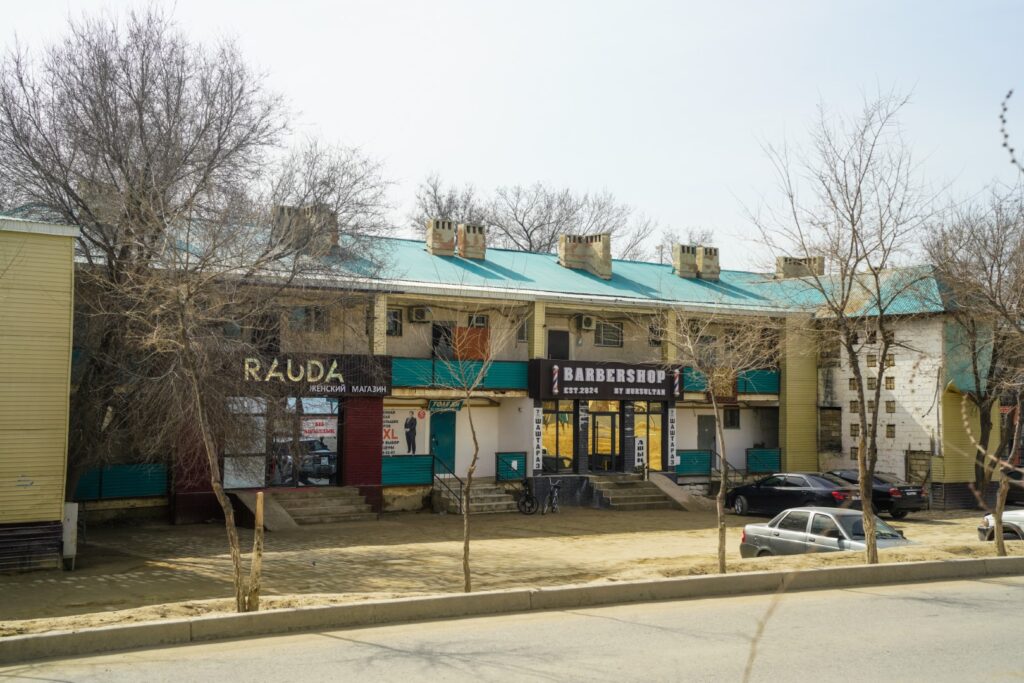
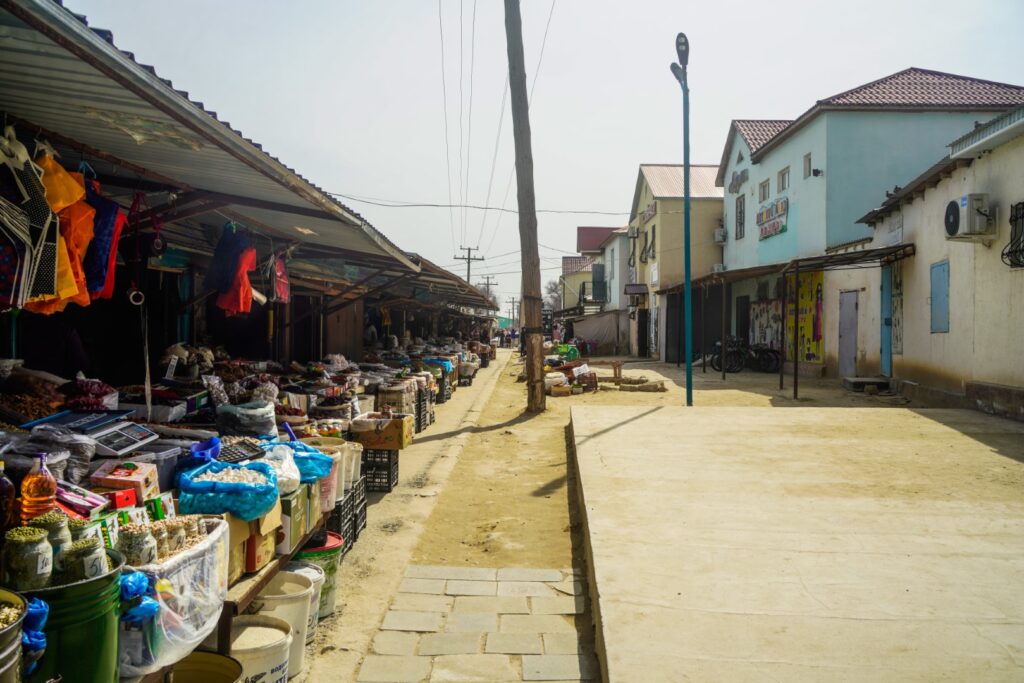
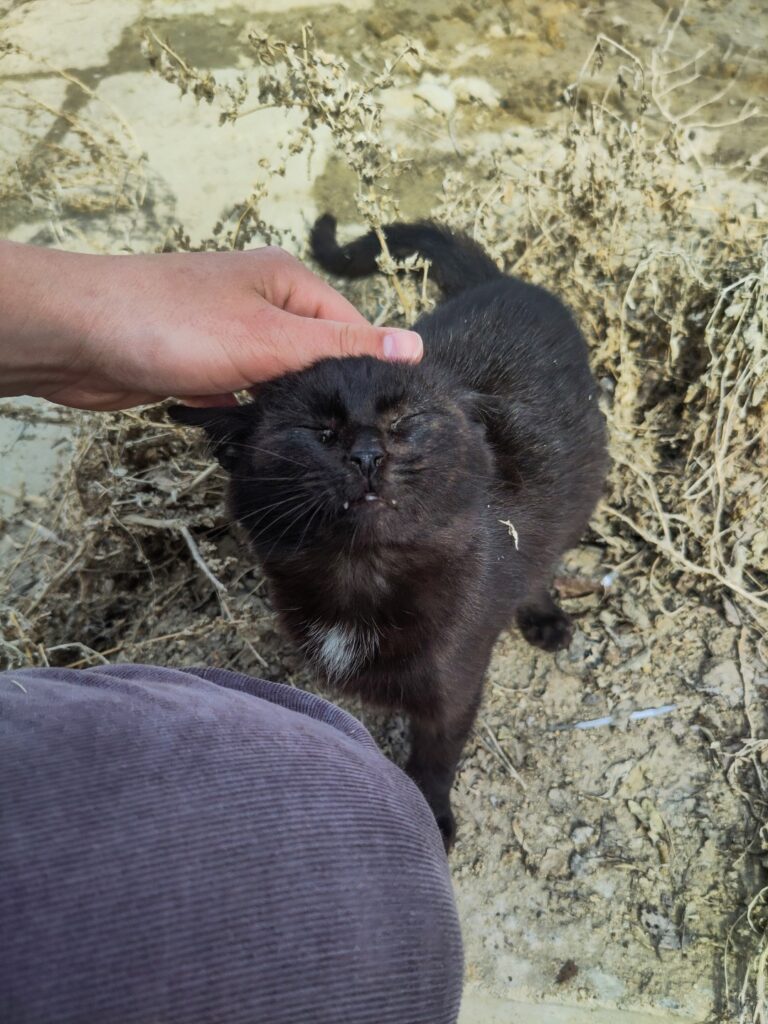
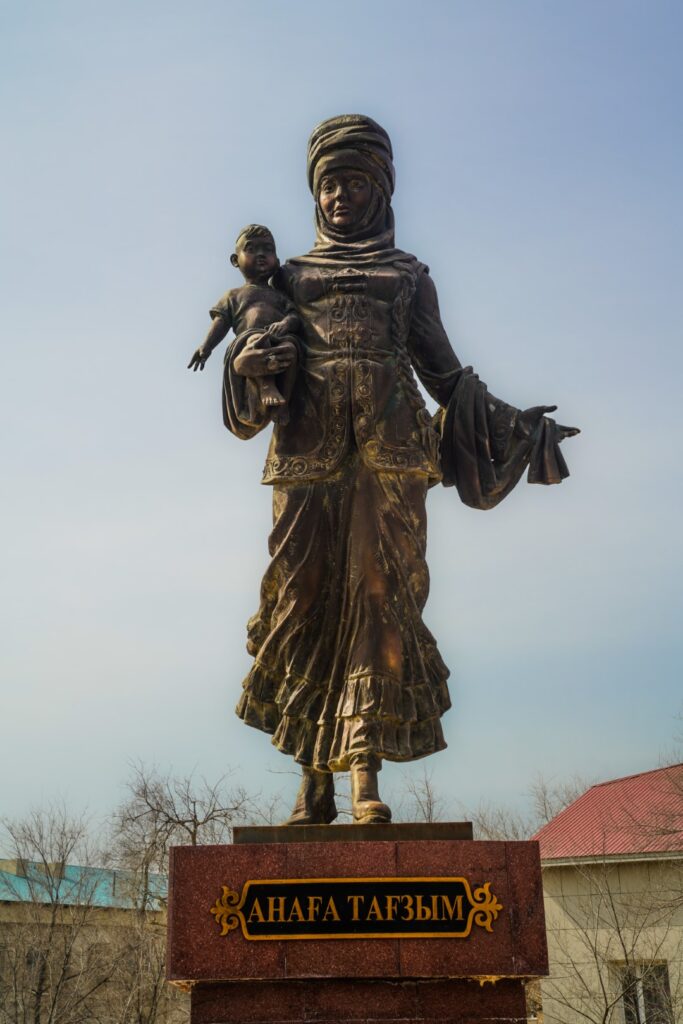
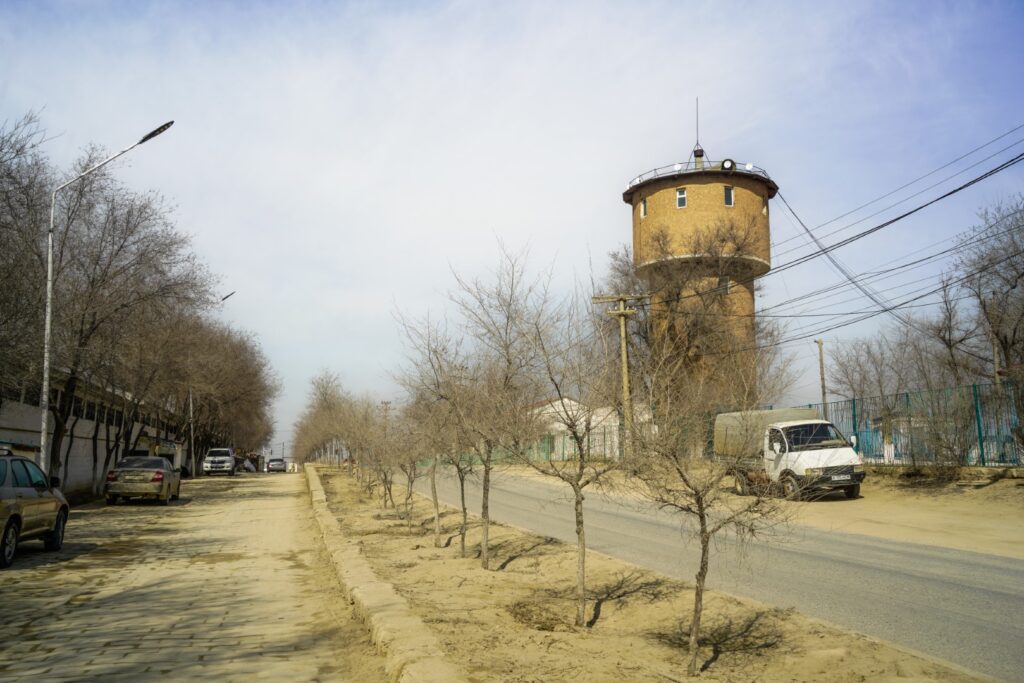
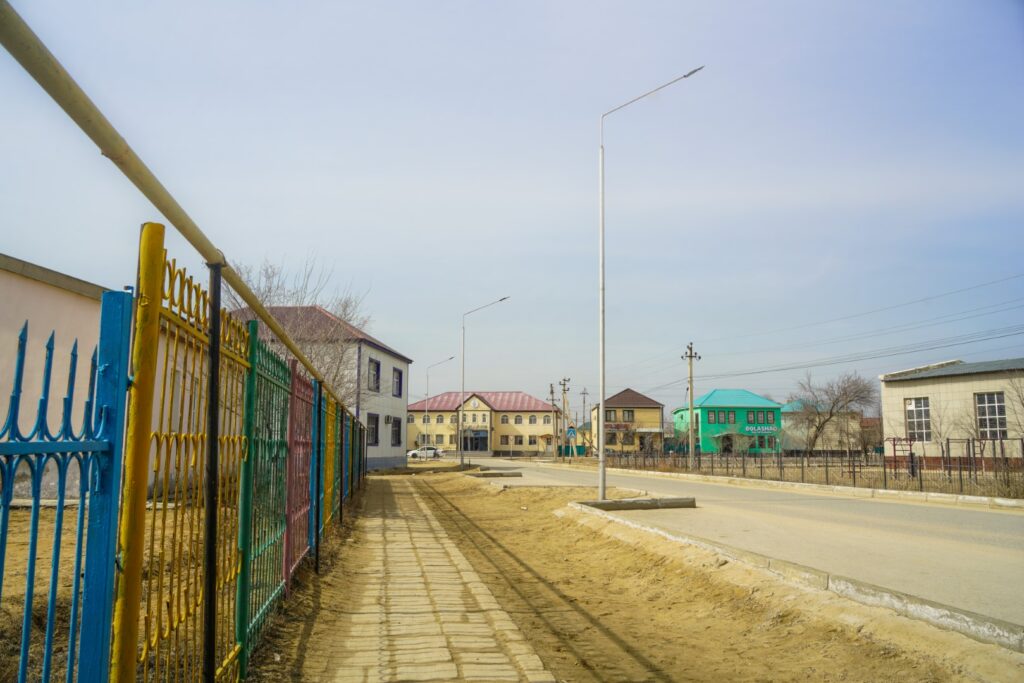
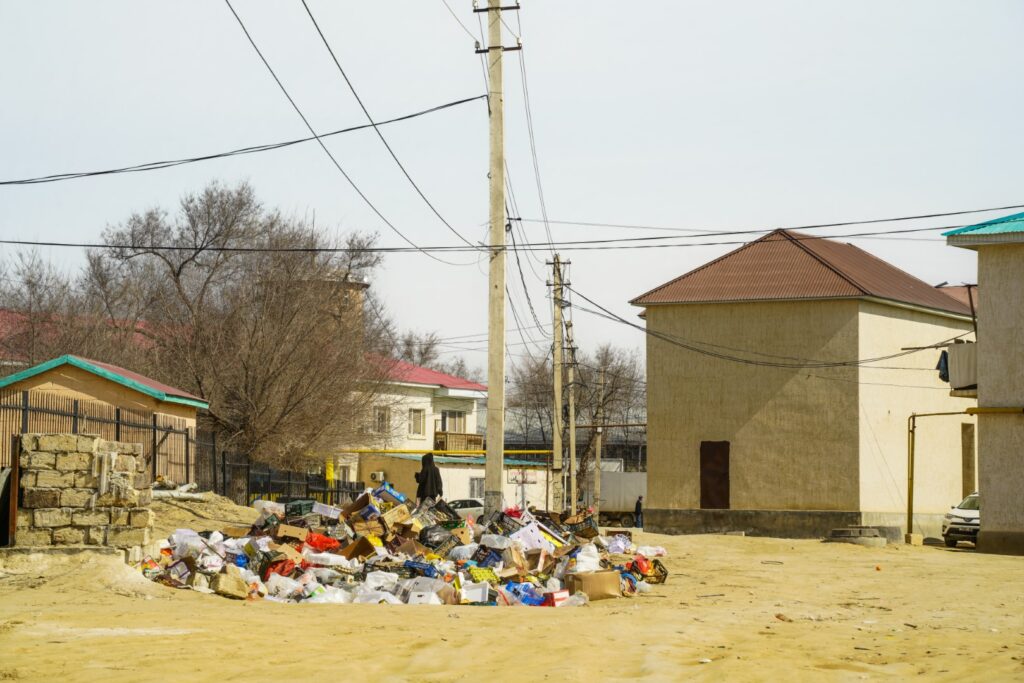
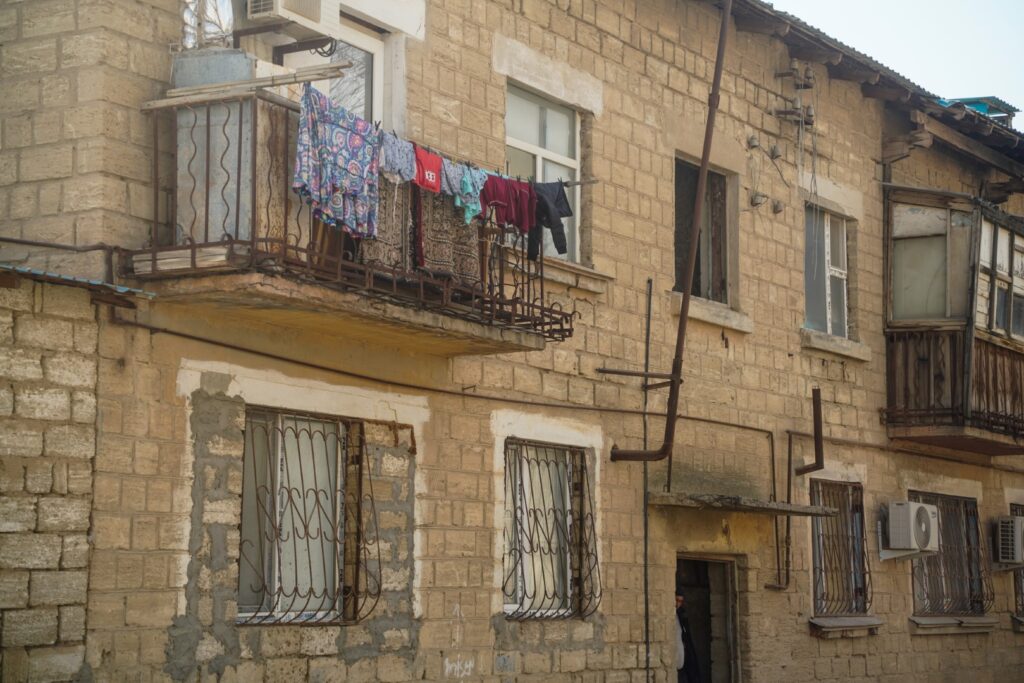
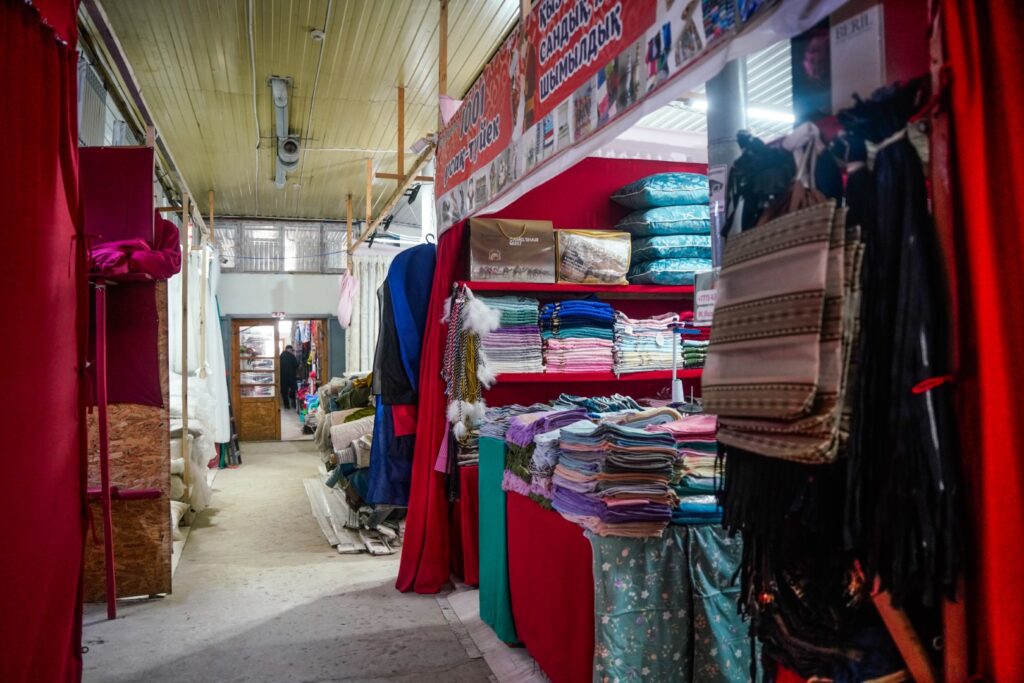
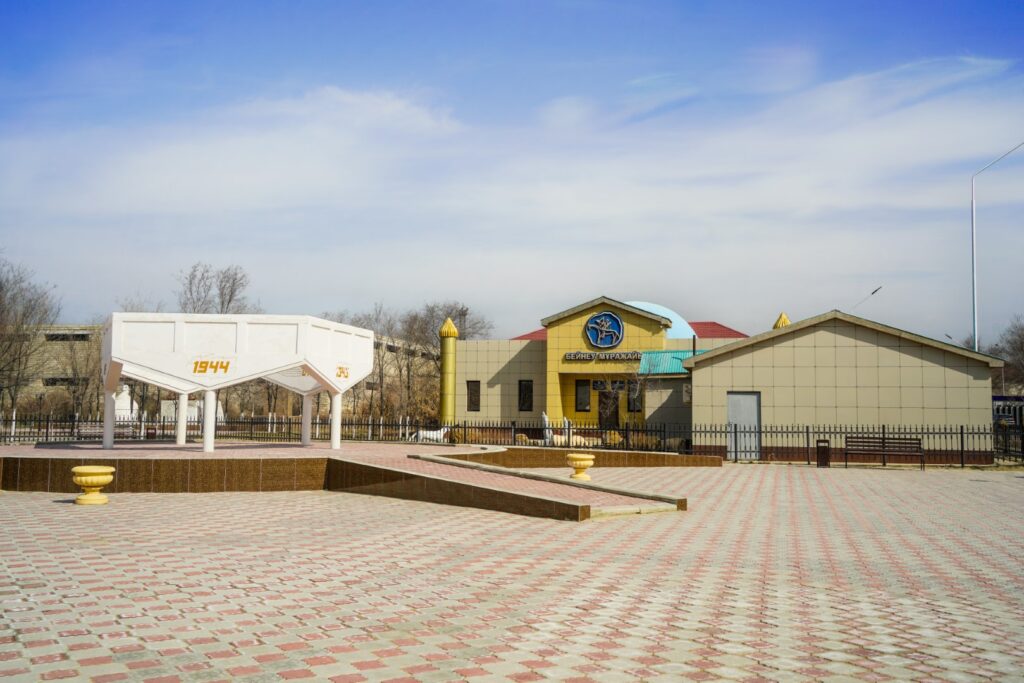
Golden hour at the mosque
I spent a few hours working in the hotel, grateful for the peace and the WiFi. Later, as golden hour bathed the town in warm light, I went out for a long walk.
I wandered towards the local stadium, where the whole area was buzzing with life – kids running around, adults relaxing, music playing, and curious eyes following the only tourist in town. The atmosphere was lively and welcoming.
Nearby, I came across a mosque – modest in its decoration but quietly beautiful. Outside, I helped a little boy lift his bike over the fence to his waiting friend, which earned me a shy smile. When I stepped inside the mosque, I was greeted by a kind elderly man and another who I assume was the imam. They both warmly beckoned me in, and the imam began asking about my trip. With the help of Google Translate – a true godsend in remote corners of the world – he told me I was very welcome in Kazakhstan.
Throughout my walk, I was constantly approached by curious locals. Little kids would run up to me on the street, thrilled to see a foreigner. People would ask if I was a tourist and where I was from. When I answered “Danya” (‘Denmark’ in Russian), most looked genuinely surprised – many had probably never met a Dane before.
There’s something deeply special about travelling in places where tourism hasn’t yet taken hold. Encounters feel real, curious, and human. Beyneu may not have attractions in the traditional sense, but it offers something far rarer: genuine connection and heartfelt hospitality.
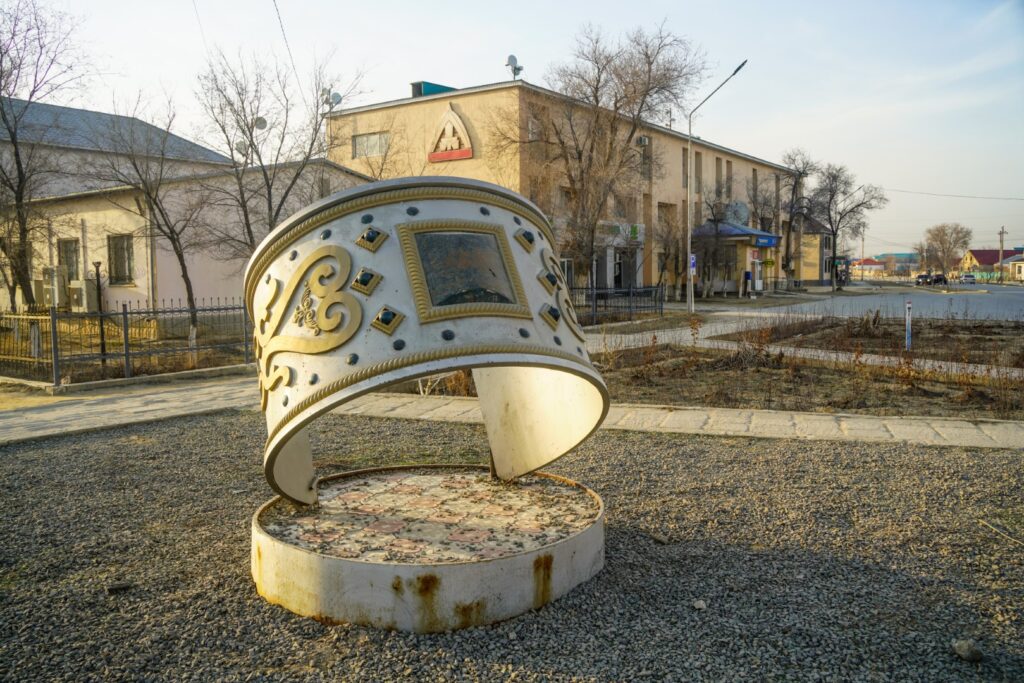
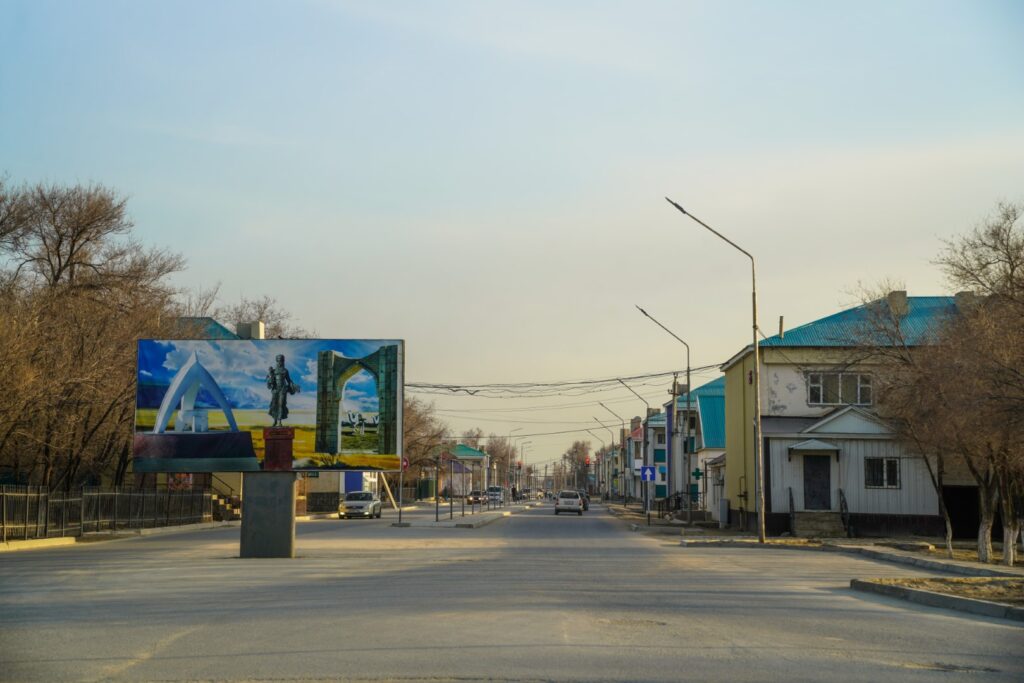
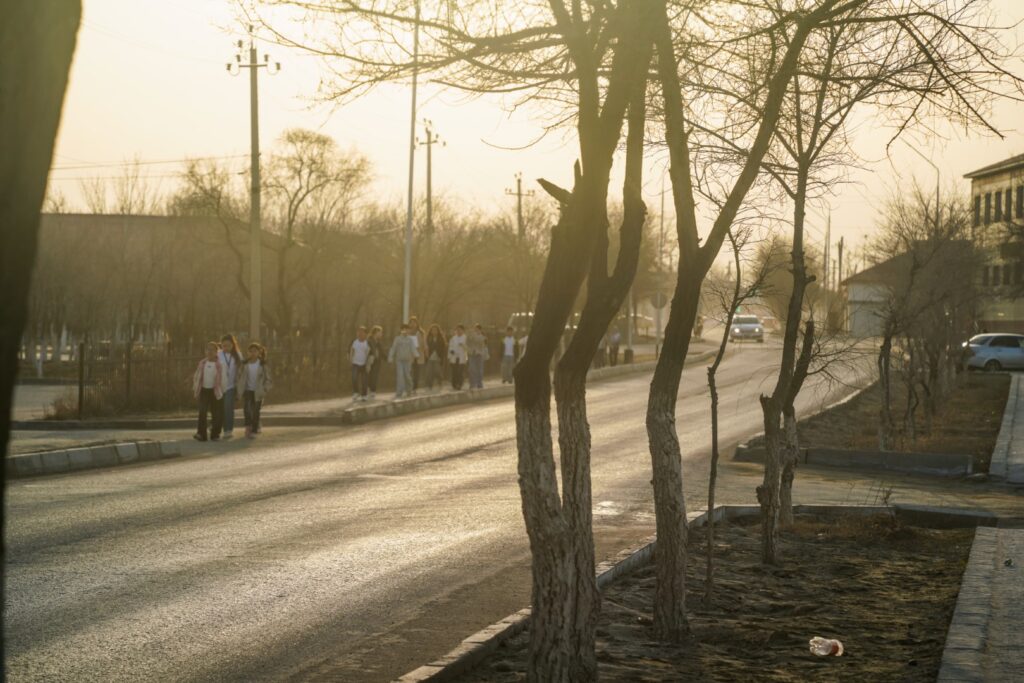
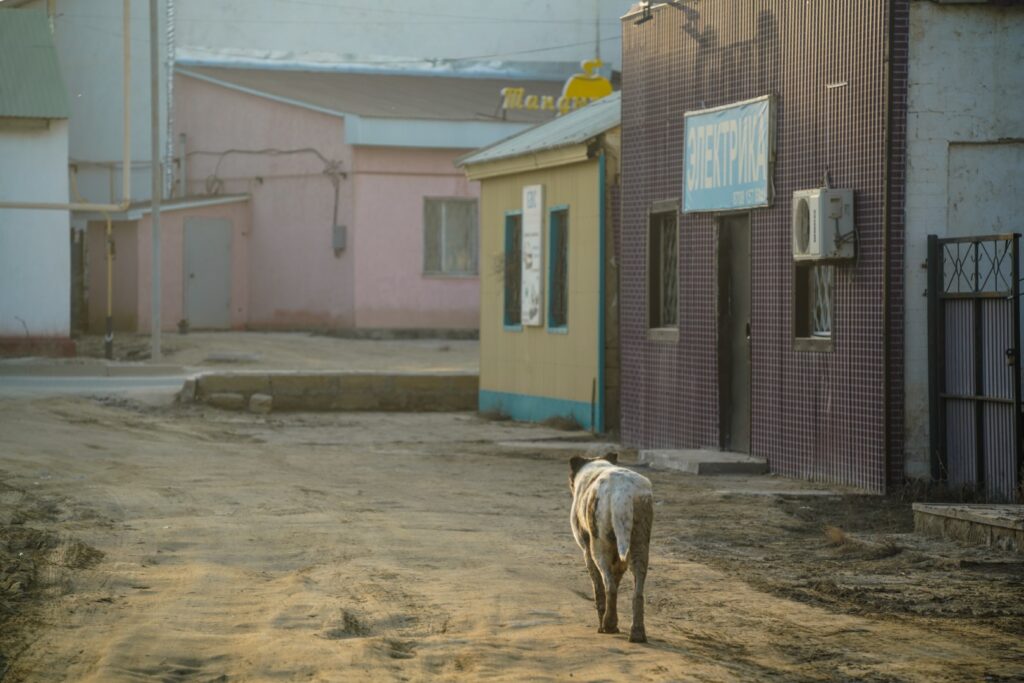

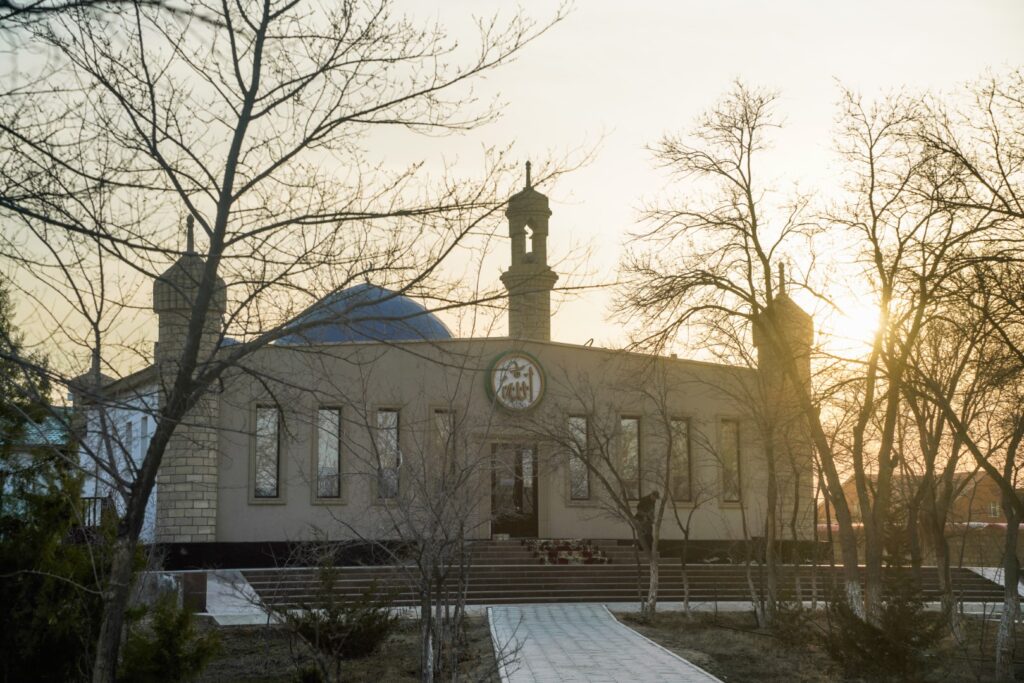

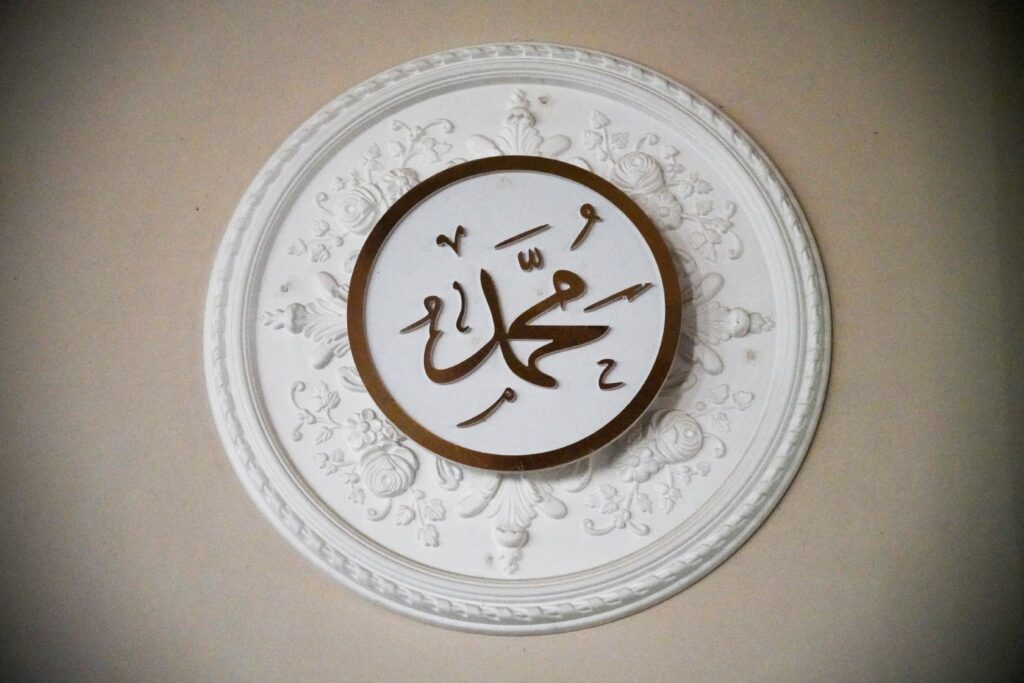
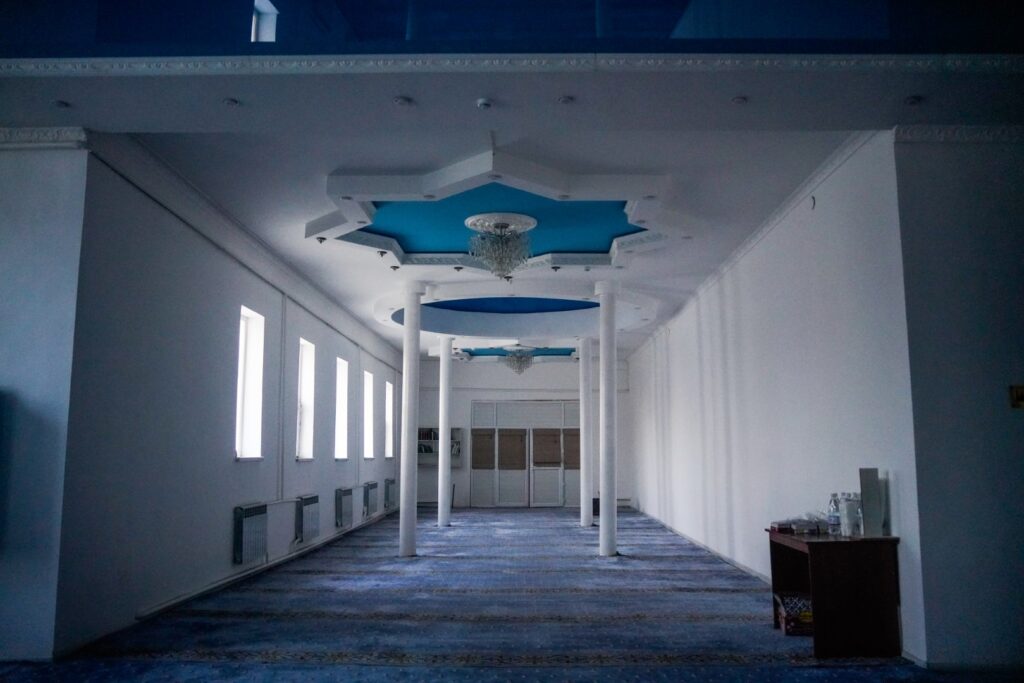
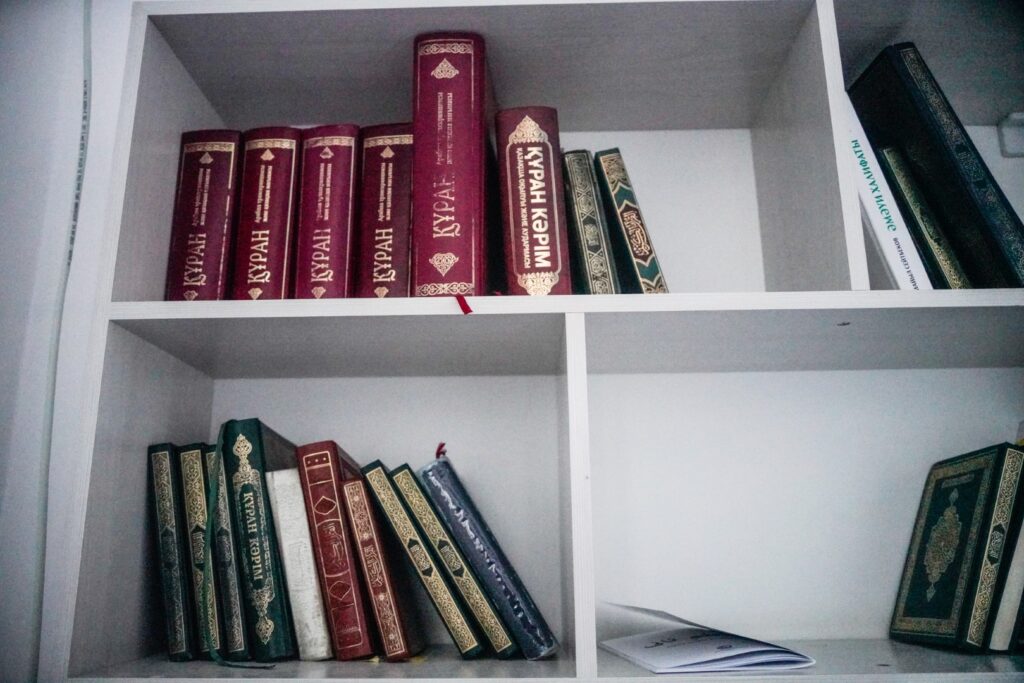
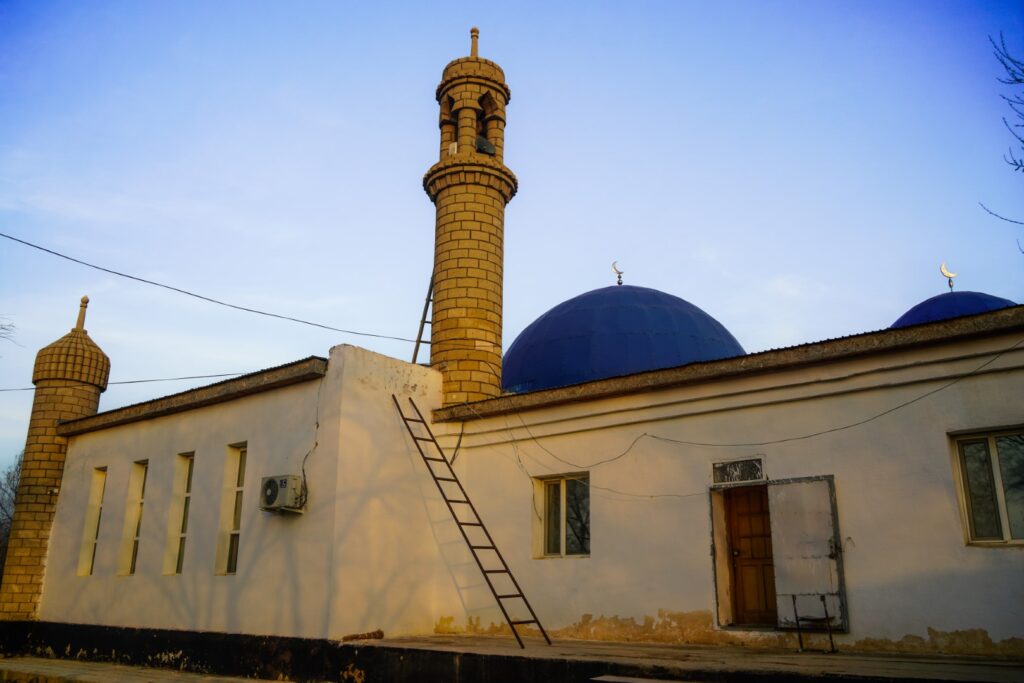
Sunset and a last look at Beyneu
I continued wandering through random streets, letting the setting sun and my intuition guide me. At one point, I came across a massive trash pile – an unexpected but grounding sight. It reminded me just how fortunate we are in little Denmark, where litter in the streets is rare and easily dealt with.
As dusk began to fall, I started making my way back towards the hotel. On the way, I stumbled upon a park called Ploshad Nezavisimosti – which, if Beyneu has a town centre, this felt like it. The place was full of life: children and teenagers racing around, riding scooters, playing games, and some glued to their phones. It was a small but vivid glimpse into local life, and I was glad I got to experience it before the day ended.
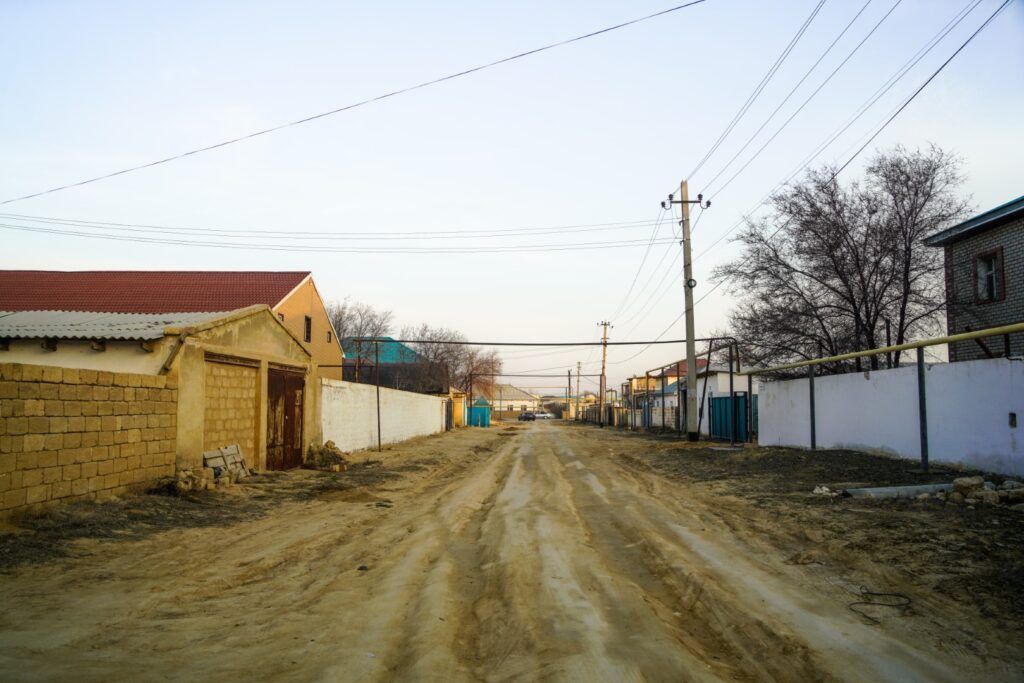
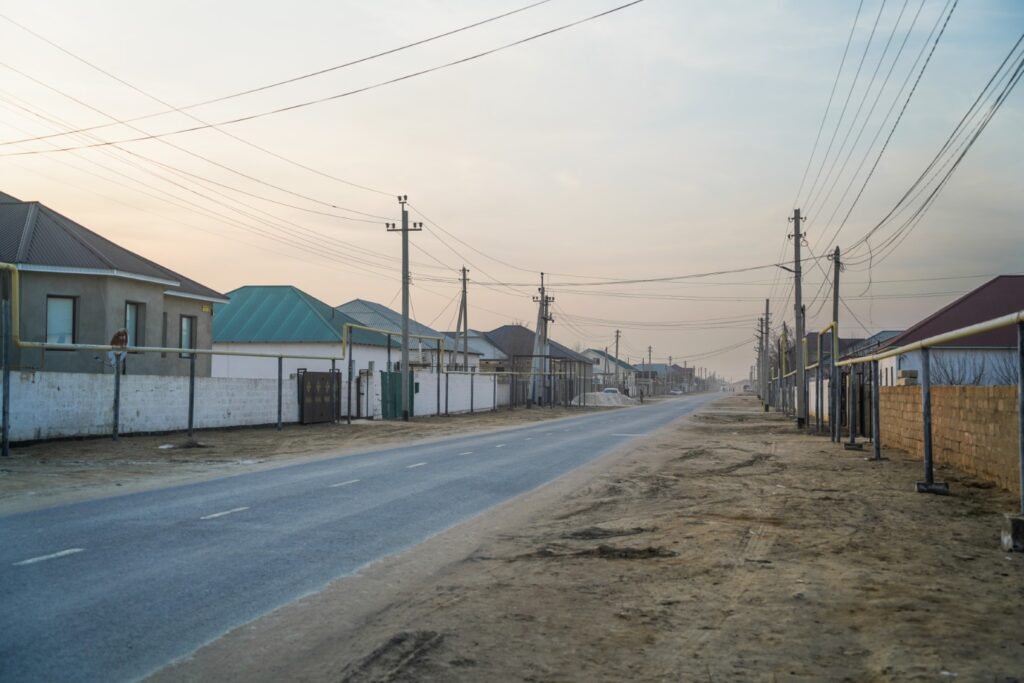
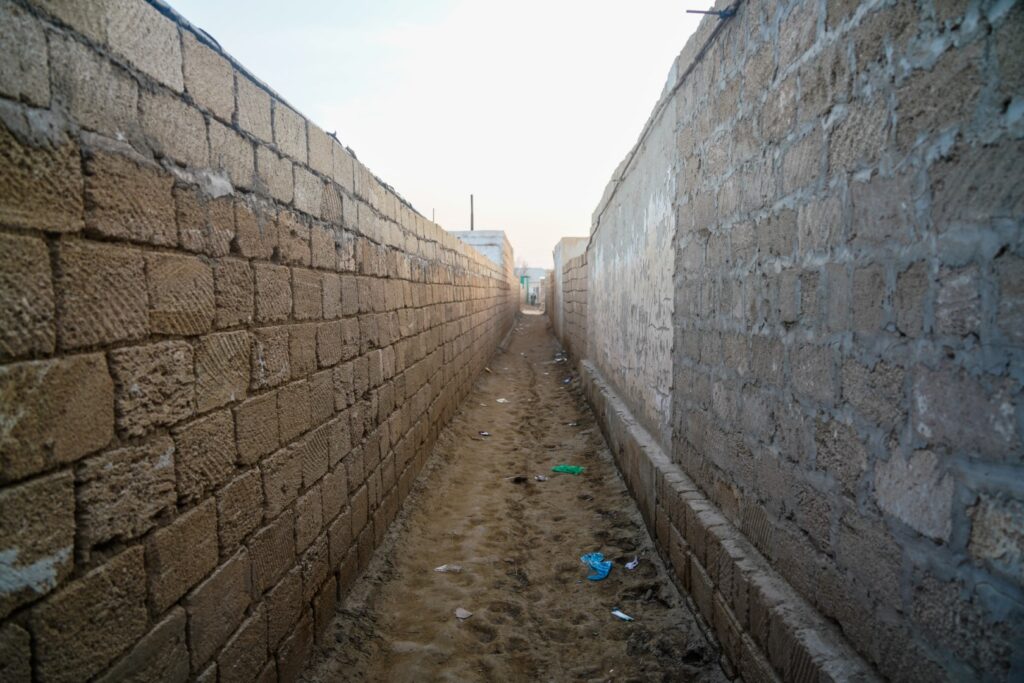
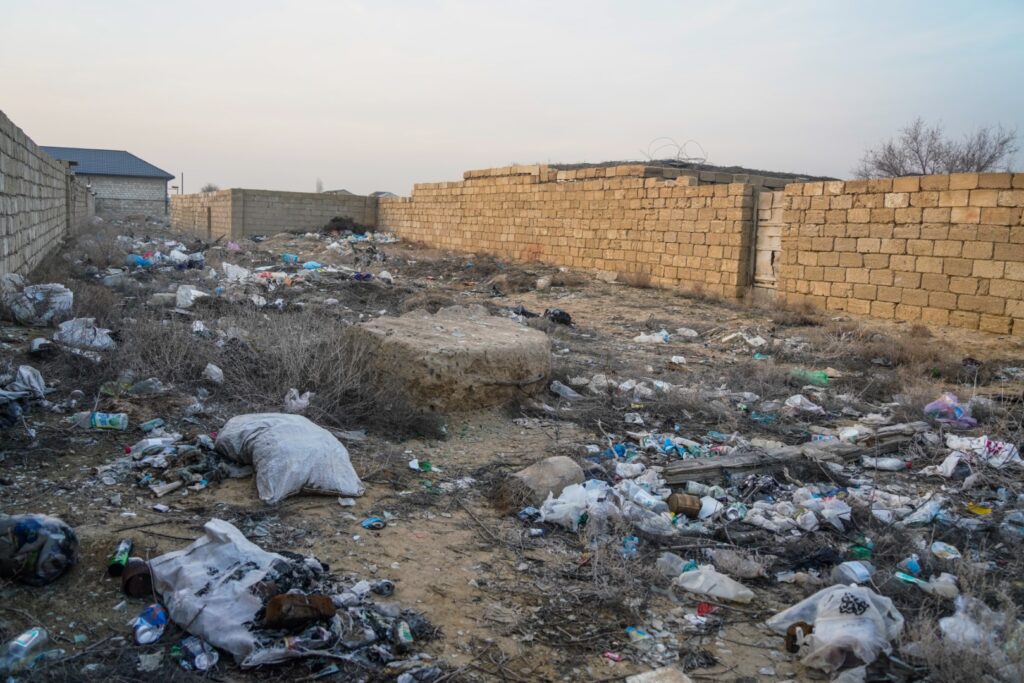
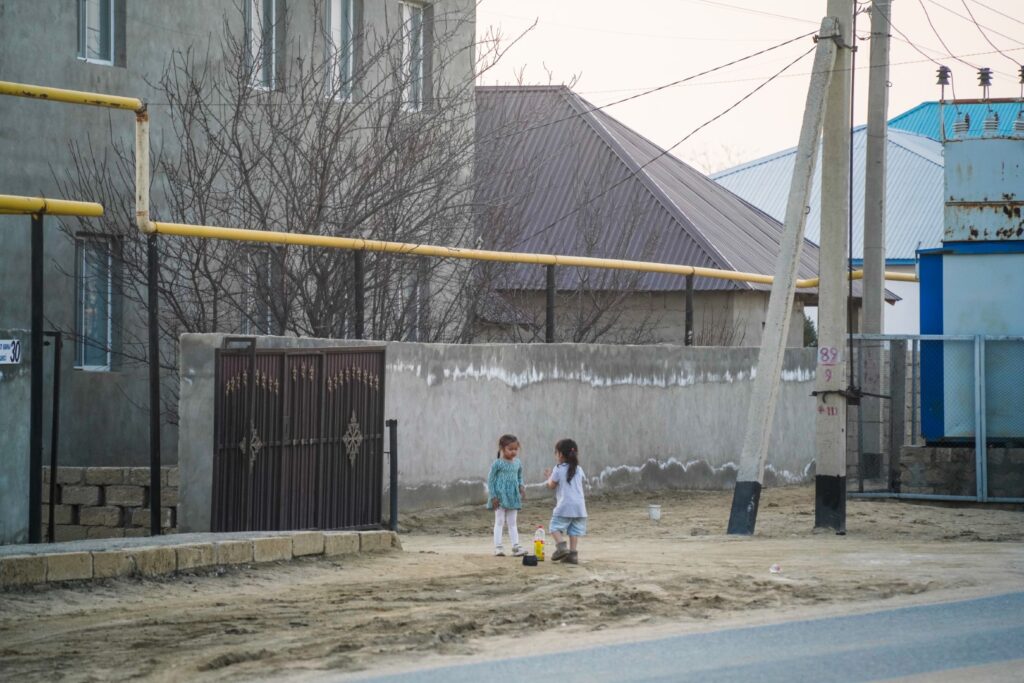
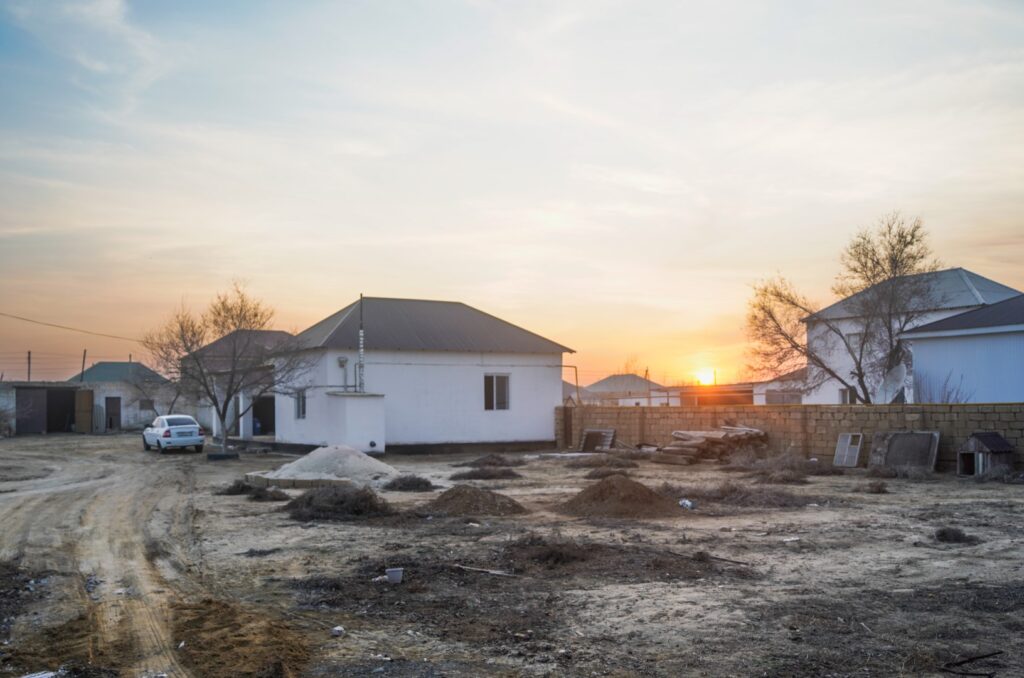
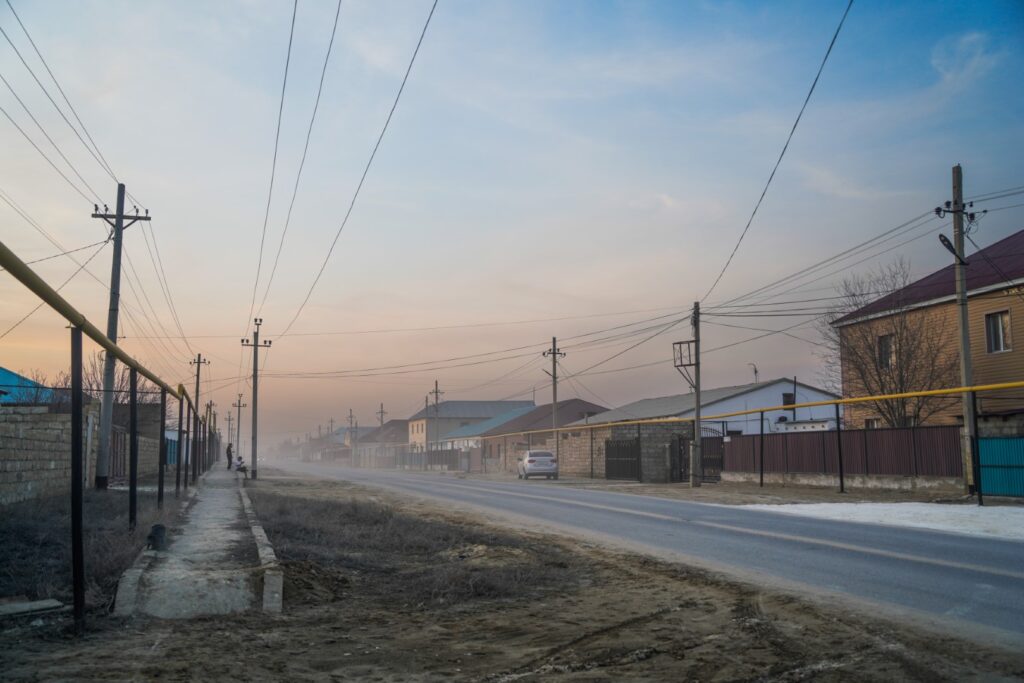
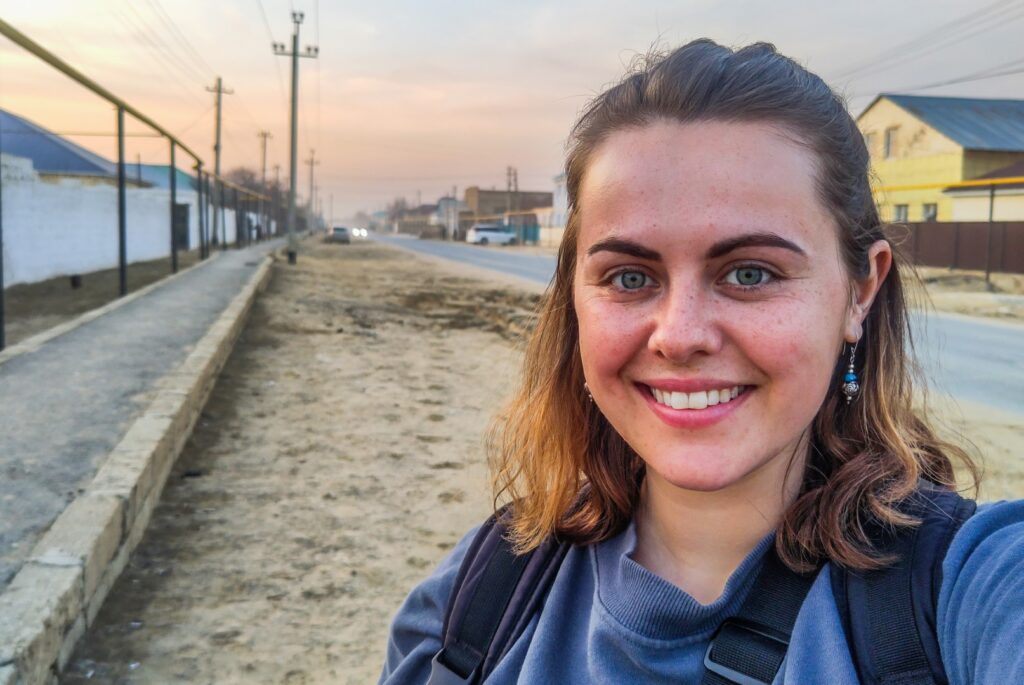
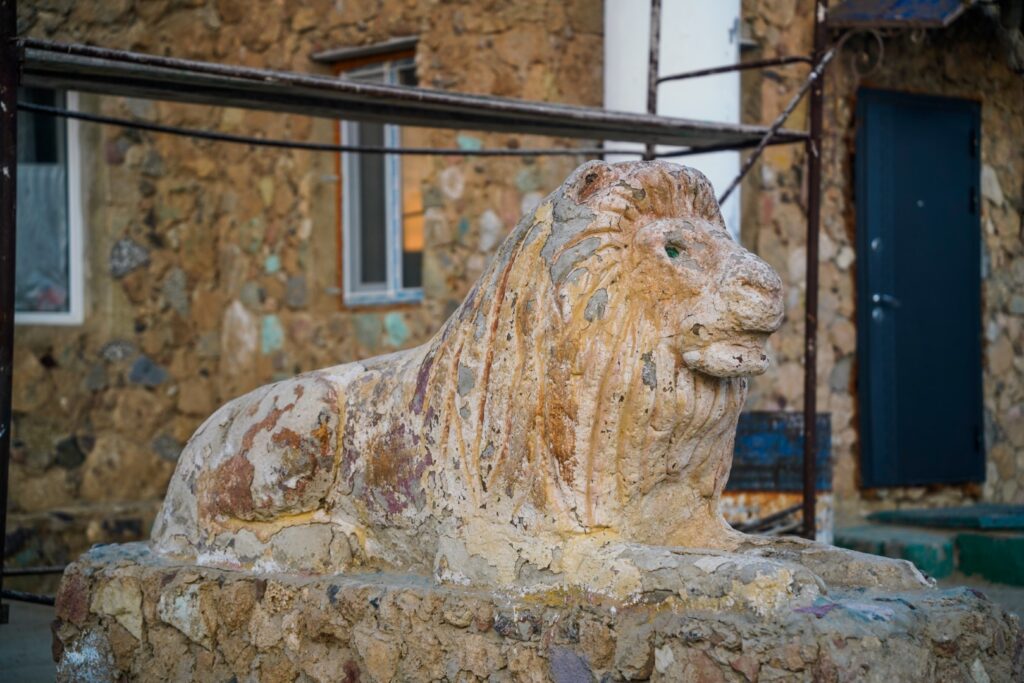
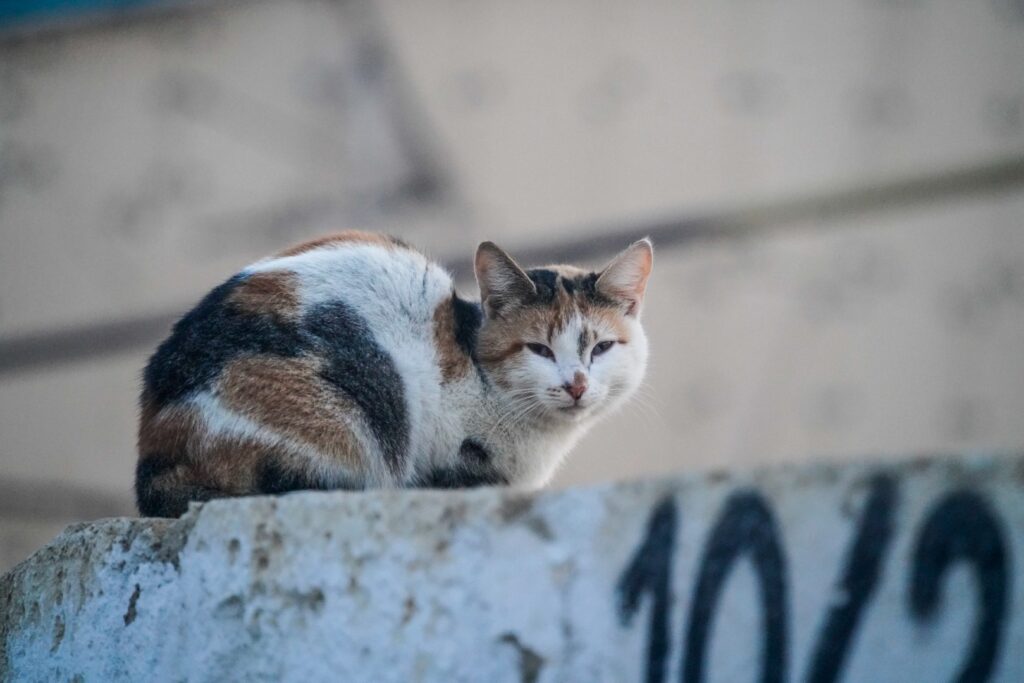
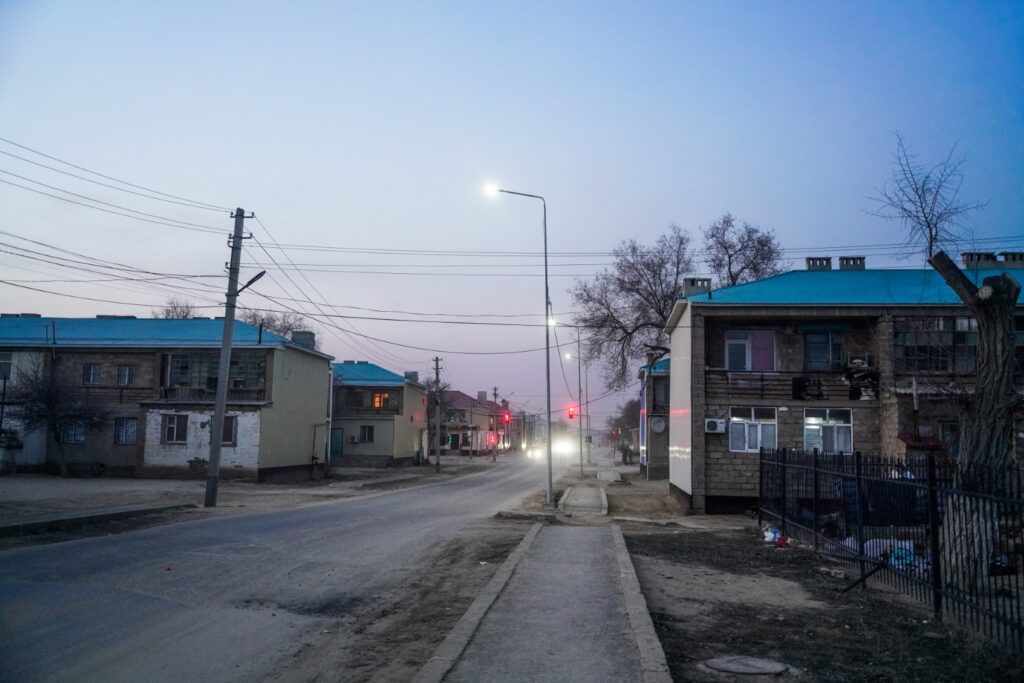
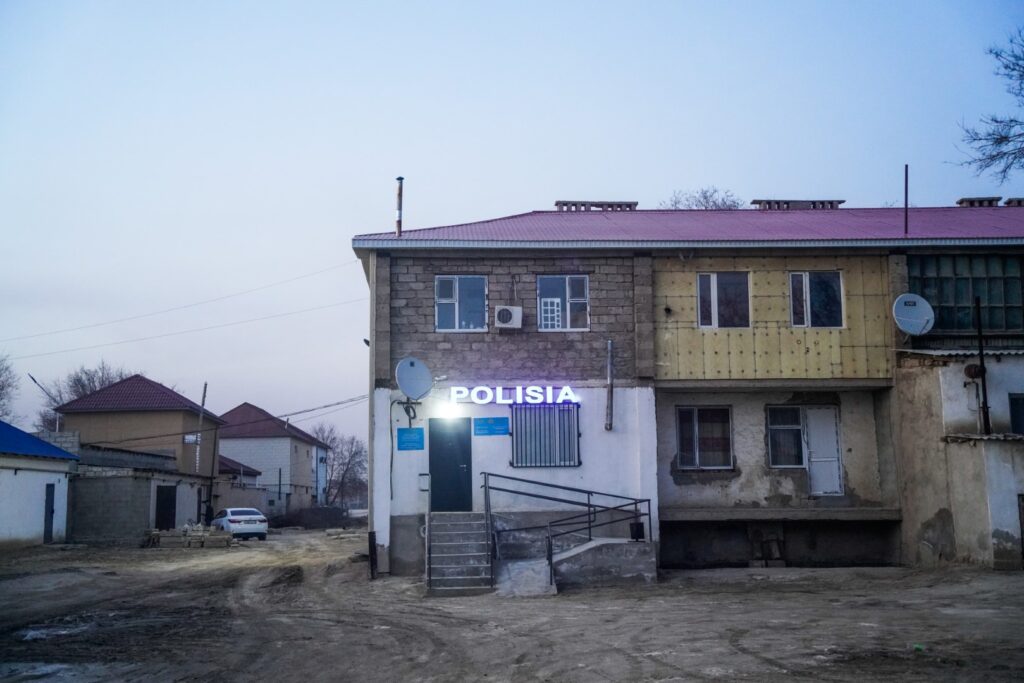
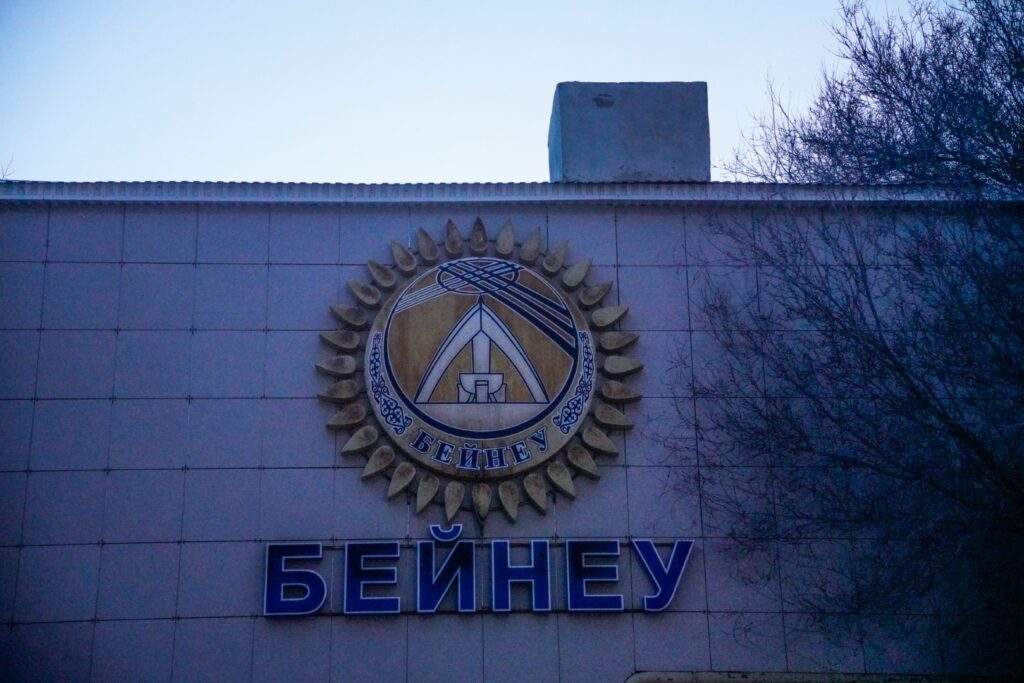


Back in my lovely hotel room, I spent the next five hours working and resting, recharging a bit before the long journey ahead. Close to midnight, I made my way back to the train station – arriving a little early and enjoying the cool evening air after a surprisingly hot day at 22°C. As I boarded the train to Astana, I felt everlastingly thankful that this time, there were no borders to cross. Just two days of endless steppe landscapes and tiny station villages scattered across the vast, open heart of Kazakhstan.
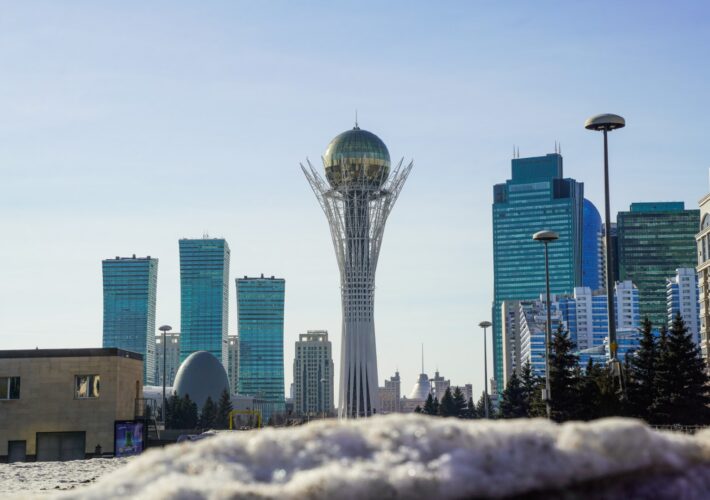
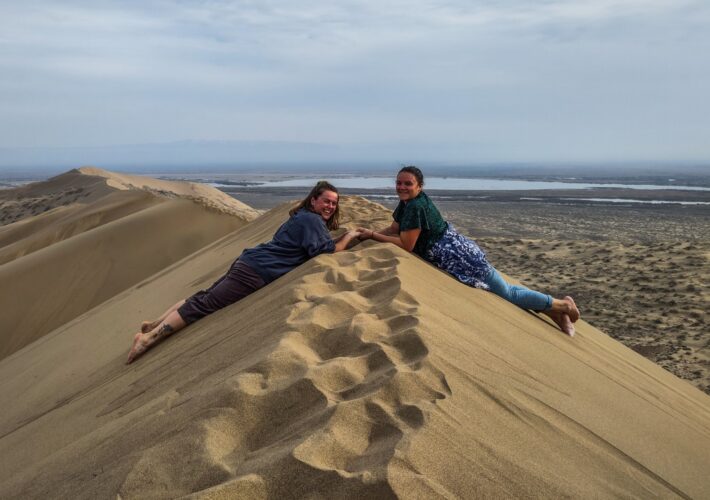
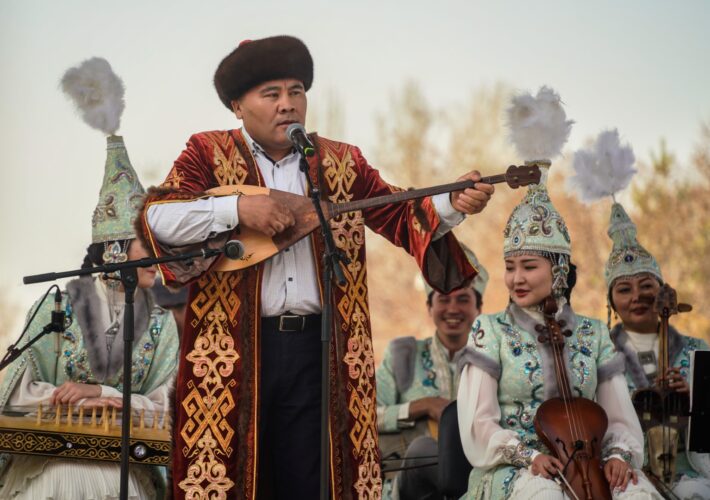
Leave a Comment